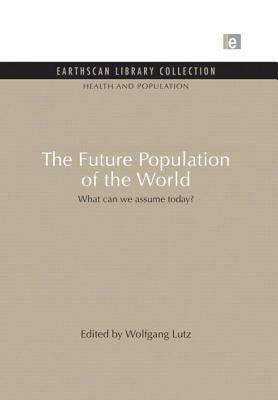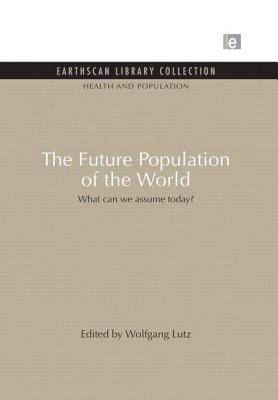
- Afhalen na 1 uur in een winkel met voorraad
- In januari gratis thuislevering in België
- Ruim aanbod met 7 miljoen producten
- Afhalen na 1 uur in een winkel met voorraad
- In januari gratis thuislevering in België
- Ruim aanbod met 7 miljoen producten
The Future Population of the World
What Can We Assume Today
Omschrijving
'An excellent basis for thinking about the future of the world's population. Every contributor to the population-environment debate needs to read the demographic sense the book contains and lecturers in population matters around the globe should recommend it to their students'
Applied Geography
'The most authoritative assessment available of the extent to which population is likely to grow'
Development and Cooperation
'Lutz and his colleagues at IIASA have done a masterful job of presenting and explaining the dominant approach to forecasting the world's population and the population of its 12 main regions'
Population and Development Review
'Immensely readable ... highly recommended'
Development and Change
The highly acclaimed The Future Population of the World contains the most authoritative assessment available of the extent to which population is likely to grow over the next 50 to 100 years. The book provides a thorough analysis of all the components of population change and translates these factors into a series of projections for the population of the world's regions.
This revised and updated version incorporates completely new scenario projections based on updating starting values and revised assumptions, plus several methodological improvements. It also contains the best currently available information on global trends in AIDS mortality and the first ever fully probabilistic world population projections.
The projections, given up to 2100, add important additional features to those of the UN and the World Bank: they show the impacts of alternative assumptions for all three components (mortality and migration, as well as fertility); they explicitly take into account possible environmental limits to growth; and, for the first time, they define confidence levels for global populations.
Combining methodological innovation with overviews of the most recent data and literature, this updated edition of The Future Population of the World is sure to conform its reputation as the most comprehensive and essential publication in the field.
Wolfgang Lutz is leader of the Population Project at IIASA and lecturer at the University of Vienna.
Originally published in 1996
Specificaties
Betrokkenen
- Uitgeverij:
Inhoud
- Aantal bladzijden:
- 526
- Taal:
- Engels
- Reeks:
Eigenschappen
- Productcode (EAN):
- 9780415853705
- Verschijningsdatum:
- 12/04/2013
- Uitvoering:
- Paperback
- Formaat:
- Trade paperback (VS)
- Afmetingen:
- 156 mm x 234 mm
- Gewicht:
- 730 g

Alleen bij Standaard Boekhandel
Beoordelingen
We publiceren alleen reviews die voldoen aan de voorwaarden voor reviews. Bekijk onze voorwaarden voor reviews.








